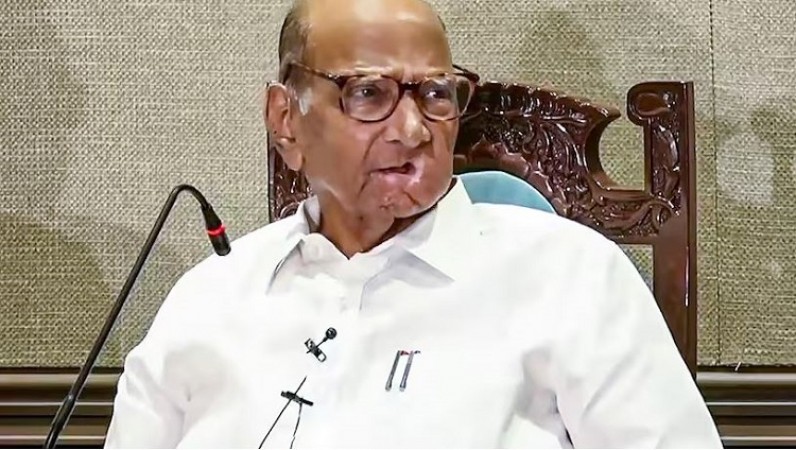
New Delhi: Following India's decision to abstain from voting on a UN General Assembly resolution demanding an immediate ceasefire in Gaza, Sharad Pawar, the leader of the Nationalist Congress Party (NCP), voiced his concerns over the Narendra Modi government's stance on the Palestine issue. Pawar emphasized that India's historical policy has been to support Palestine rather than Israel.
Sharad Pawar asserted that there is a degree of confusion within the Indian government concerning its stance on Palestine. He pointed out that India's established policy has traditionally been in favor of Palestine, yet this stance seemed to have shifted. Pawar highlighted the ongoing loss of life in Palestine and expressed his concerns about India's perceived departure from its historical position.
On October 20, Pawar criticized BJP leaders who had been critical of his remarks on the Israel-Palestine issue, accusing them of being excessively loyal to Israel. Notably, he also welcomed Prime Minister Narendra Modi's announcement regarding India's humanitarian assistance to the Palestinian people.
Sharad Pawar reaffirmed that his views align with those of previous Prime Ministers, including Jawaharlal Nehru and Atal Bihari Vajpayee, who advocated for a peaceful resolution to the long-standing Israel-Palestine conflict, with both nations coexisting as peaceful neighbors. The Israel-Hamas conflict has resulted in the loss of over 8,000 lives. On October 7, Hamas initiated a surprise attack in southern Israel, resulting in the deaths of 1,400 people, including foreign nationals.
The subsequent Israeli counteroffensive in Gaza has led to the deaths of more than 7,000 Palestinians and injuries to thousands more. On a recent occasion, the UN General Assembly passed a resolution with an overwhelming majority, urging an immediate ceasefire in Gaza. This action was prompted by critical shortages of medical supplies and fuel in Gaza hospitals, which are overwhelmed with injured Palestinians. Calls for a pause in the conflict have gone unheeded by Israel and its steadfast ally, the United States.
The Gaza conflict now poses the risk of escalating into a regional crisis, as Hezbollah conducts attacks on Israeli positions in the north, and Iran issues threats of consequences if Israel launches a ground offensive. The United States has already targeted Iran-backed militias in Syria in response to attacks on its bases carried out by drones and rockets allegedly launched by these militias.
In a separate context, Sharad Pawar criticized Prime Minister Modi for linking him to decisions made in Shirdi. He claimed responsibility for the Agriculture Department from 2004 to 2014 and the necessity of importing wheat due to low domestic stocks in 2004. Subsequently, decisions were made to increase agricultural production, resulting in improvements in wheat, soybeans, rice, cotton, maize, and pigeon peas production between 2004 and 2014, as per Pawar's statements.
#WATCH | On the Israel-Hamas conflict, NCP chief Sharad Pawar says, "...there is confusion among the Indian government on the Palestine issue. India's policy was to support Palestine, not Israel. Thousands of people are dying (in Palestine) and India never supported it. So there… pic.twitter.com/5WUUbOOr7w
— ANI (@ANI) October 28, 2023
Israeli Military Escalates Operations in Gaza, Releases Tank Video, Targets Hamas Tunnels
How Priyanka Gandhi Expresses Concern Over India's UN Abstention on Gaza Truce Resolution
What Led to India's Abstention on UNGA Resolution Regarding Israel-Hamas Conflict